How Long Does Neem Oil Last? A Complete Shelf Life Guide
You’ve likely heard of the benefits of neem oil as a natural, organic insecticide, but you might be less familiar with exactly how long neem oil lasts, both in terms of its overall shelf life and its effectiveness after you’ve mixed it with water.
If stored in a cool, dry place, neem oil has a shelf life of 1-3 years. When making an insecticidal spray—and mixing it with water and an emulsifier—neem oil will maintain peak effectiveness for just a few hours but remain viable for up to 3-4 days before its chemical compounds fully break down.
But even if your diluted neem oil mixture has passed the 4-day mark, this doesn’t mean that it’s completely ineffective, for reasons I’ll explain below.
So let’s take a look at the many factors that influence how long neem oil lasts and what you can do to make sure your neem oil sprays works as intended when you spray it on your plants.
But before I go into the details, here’s a list of the products you’ll need–and the ones I prefer–if you want to make your own neem oil spray.
Because these are affiliate links–which means I’ll make a small commission at no extra cost to you if you purchase anything–I’m very picky about the products I recommend. Check out my product disclosure page to learn more about the care I take when recommending anything to my readers.
Cold-Pressed Neem Oil Concentrate
When it comes to cold-pressed neem oil, these are my favorite products in terms of quality and price point:
- Neem Bliss Neem Oil: I love Neem Bliss, especially in its concentrated form. You can’t go wrong with this product.
- Verdana Organic Neem Oil: There’s literally no difference between Neem Bliss and Verdana as far as I can tell. Buy whichever one you can find at the best price!
Natural Liquid Soap
I have several favorites when it comes to liquid soap, but my overall choice is Dr. Bronner’s, especially the larger gallon size because it’s far cheaper per ounce than purchasing the smaller bottles:
- Dr. Bronner’s Peppermint Castile Soap: You can’t go wrong with this soap. It’s perfect for the garden!
Garden Sprayer
I’ve yet to find a garden sprayer that’s flawless, so I’ve used various sprayers over the years, both the cheap ones and the nicer ones:
- Chapin 1- or 2-Gallon Sprayers: Generally speaking, Chapin makes a good sprayer. You’ll want to own both a 1-gallon and 2-gallon sprayer. The bigger sprayers are great for soapy water sprays (since you can store those for repeated uses). The smaller sprayers are better for neem oil sprays.
- Vivosun Handheld Sprayer: I’ve had good luck with Vivosun products over the years, so this is a brand I’ve come to trust.
If you purchase neem oil concentrate, a natural liquid soap, and a decent garden sprayer, you’ll be ready to make your own neem oil insecticidal spray.
Now let’s take a closer look at how long neem oil will last and go over some guidelines when it comes to storage and use.
Neem Oil: How Long Can You Store It?
There are several factors that’ll influence the shelf life of your neem oil, so let’s take a quick look at each of them:
1. Cold-Pressed vs. Hot-Pressed
You’ve probably heard that neem oil is derived from neem trees (Azadirachta indica), but did you know that not all neem oil is alike?
Oil can be extracted from neem tree leaves and bark. It can also be hot-pressed, which involves heating up the leaves, bark, or seeds until the oil is released, then straining it to get the final product.
But when it comes to organic insecticides, what you’ll be looking for is a neem oil that has been cold-pressed. Unlike hot-pressed neem oil, which loses some chemical compounds due to the heat involved in the extraction process, cold-pressed neem oil retains those compounds, especially neem oil that’s extracted straight from the neem tree seeds and not the leaves or bark.
It’s unclear if there’s any difference between the shelf life of cold-pressed versus hot-pressed neem oils–since no research has been published on the subject–but cold-pressed oils contain more chemical compounds in general, so it’s a safe bet that they’ll remain effective longer than hot-pressed oils.
2. Recommended vs. Actual Shelf Life
Most retailers and garden stores will tell you that cold-pressed neem oil concentrate has a shelf life of 1-1.5 years, and generally speaking, that’s a safe bet.
But although there’s been quite a bit of research on neem oil–from its health benefits and immune system impacts to its effects on plant-killing bugs and medicinal properties–there’s been very little in the way of scientific studies focused on the shelf life of neem oil, as far as I can tell. This means that retailer recommendations are just suggestions, not fact.
As I noted at the beginning of this article, I’ve made effective insecticidal sprays with bottles of neem oil that were 3 years old.
I’m not suggesting that you should store neem oil for 3 years. I’m simply saying that, speaking from personal experience, neem oil still worked as an insecticidal spray even after an extended storage period.
3. Storage Temperature
Here’s where things get interesting. Neem oil will store longest when stored in a very cool location, such as a refrigerator.
But be warned: If stored between 32℉ (0 ℃) and 65℉ (18.3 ℃), the neem oil will thicken or even harden up a bit depending on the storage temperature. You’ll have to remove it from the refrigerator and let it sit for several hours at room temperature before you’ll be able to pour it into a garden sprayer.
I’ve seen some bloggers recommend storing neem oil in the refrigerator, then “scooping” out what you need, but I question whether those bloggers have ever followed their own advice. Most quality neem oil concentrates come in plastic containers with small caps. Once you remove the cap, you might be able to fit a small rectangular measuring spoon in the hole, but it’s not going to be very effective at all, especially when the bottle is already half empty.
Here’s what I recommend: Simply store your neem oil in a cool, indoor location, preferably a pantry or closet. In most homes, that’ll mean your neem oil is kept at a constant 68-74℉ (20-23.3 ℃). This is a perfect storage temperature, and unlike neem oil that’s stored in a refrigerator, you won’t have to worry about it hardening or crystallizing.
4. Packaging
If you read enough articles, you’ll see bloggers recommend that you store your product in a cool, dark place. As I noted above, I agree that neem oil lasts longest when stored in a cool place, but the advice to store neem oil in a dark place only makes sense if you purchase a neem oil product that comes packaged in a slightly to moderately translucent container.
Here’s an example of such a product.
There’s nothing wrong with this product, but I wouldn’t want to expose it to sunlight because of the slightly translucent bottle it’s packaged in.
For this reason, I prefer purchasing neem oil products that come in opaque containers, like the examples I provided at the beginning of this article.
Light can’t reach the neem oil when it’s stored in such containers, which means that I’ve got a greater chance of extending the oil’s shelf life by cutting out its exposure to light of any kind.
How Long Does Diluted Neem Oil Last?
In its concentrated form, neem oil can last for 1-3 years if stored properly and kept relatively cool. But what happens once you dilute it with water and liquid soap? How long will your neem oil spray last?
According to manufacturer recommendations, diluted neem oil will retain its full potency for up to 24 hours, although most neem oil sprays will retain some degree of efficacy if applied within 3-4 days after initial dilution.
If your neem oil spray is older than 4 days, don’t dump it out. You can instead apply it as a soil drench. On the one hand, your plants might get some benefit from the drench. At the very least, it won’t hurt your plants.
How Long Does Neem Oil Last on Plants?
According to the National Pesticide Information Center, neem oil has a half-life of 1-2.5 days after you’ve sprayed it on your garden plants.
This means that the potency of the neem oil solution decreases by 50% every 24-60 hours. In other words, after it’s been on your plants for 1-2.5 days, the neem oil is 50% less effective than when it was first sprayed. After 2-5 days, it’s only 25% effective. And at 4-10 days, it’s likely lost most, if not all, of its initial potency.
This is why neem oil must be reapplied if you’ve got an insect infestation in your garden, typically every 4-7 days.
Neem oil is an incredible natural product, but it breaks down quickly, and in my experience, 1 application is almost never enough to solve whatever pest problem you’ve got on your hands.
How Long Does Neem Oil Take to Work?
As I’ve noted in a recent article on how long it takes for neem oil to kill bugs, you’ll need to wait anywhere from 3-7 days before you’ll see results from your neem oil application.
The reason is simple: Neem oil typically doesn’t kill insects on contact. It must be absorbed into their bodies, which typically occurs as they feed on a recently-sprayed plant. After absorption, the naturally-occurring chemical azadirachtin will begin its work, disrupting the bug’s biological, hormonal, and reproductive systems.
Additional Information
If you’d like to learn more about neem oil–including an overview of the recipe I used and the treatment method I typically follow–take a look at these articles:
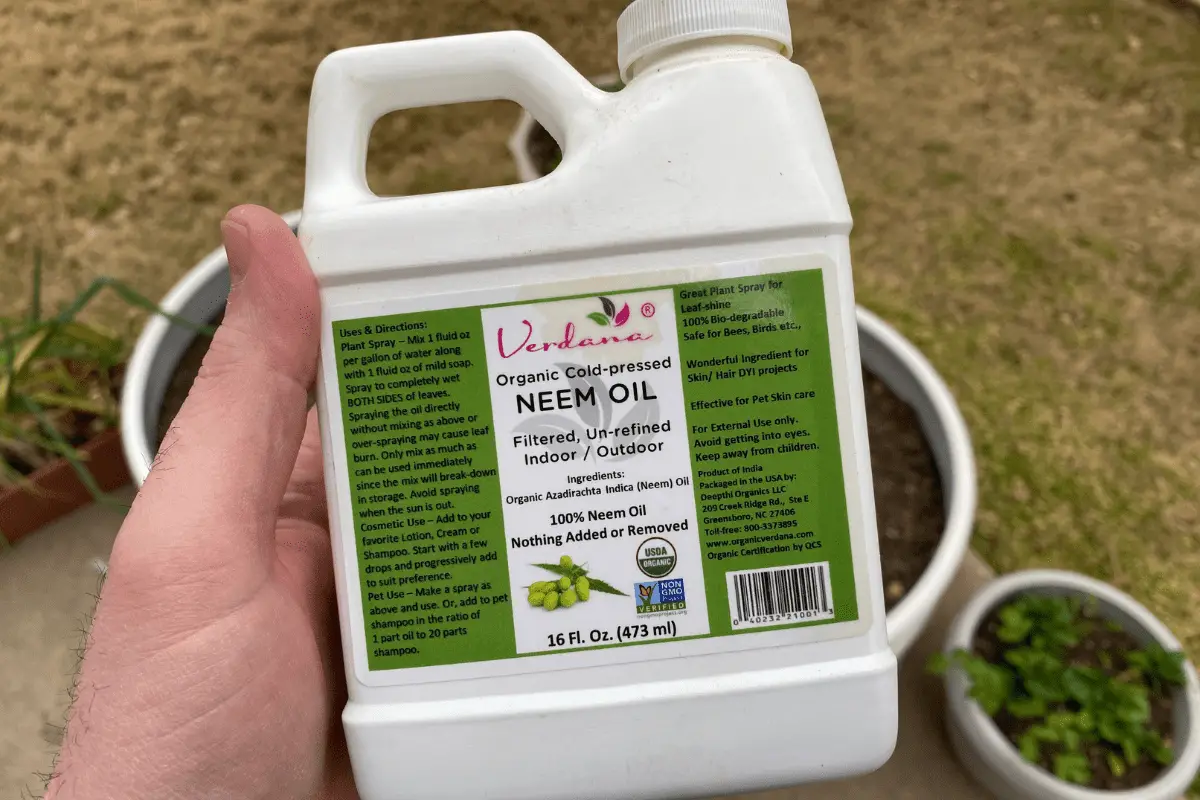

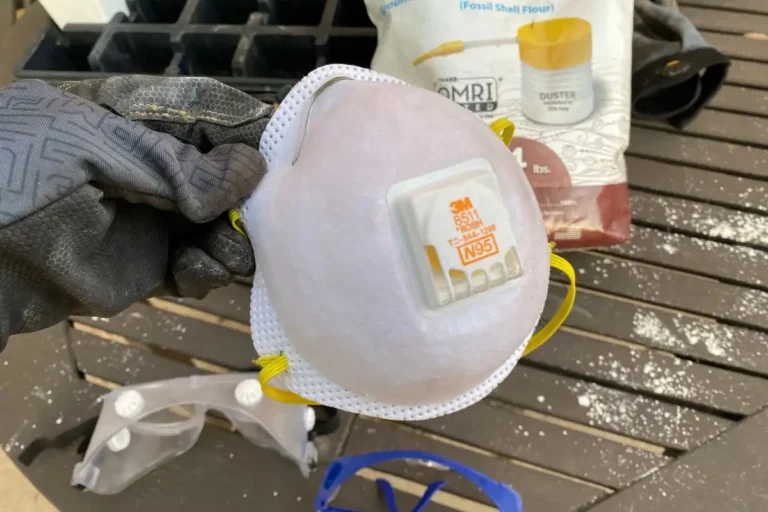
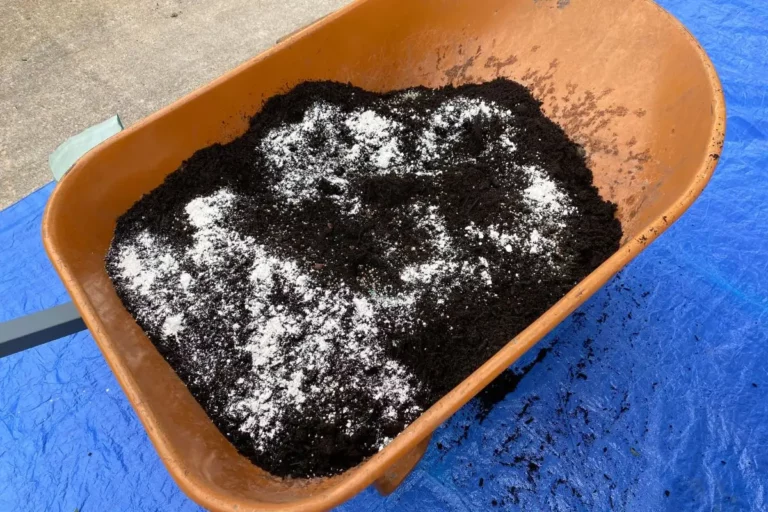
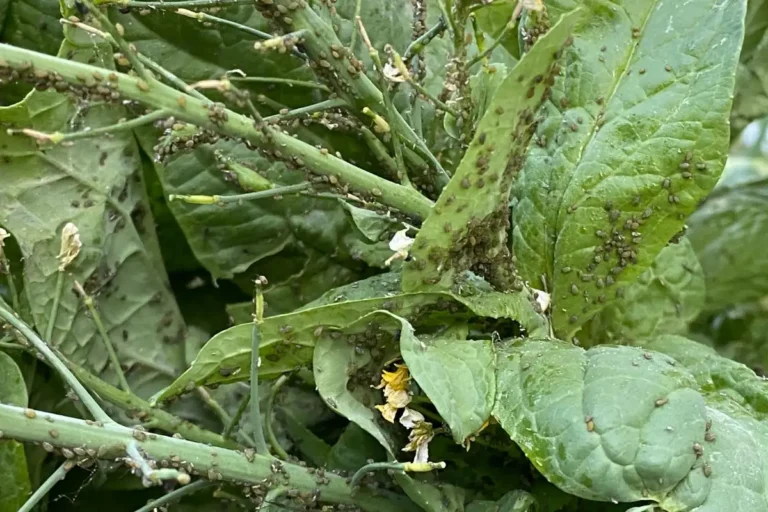
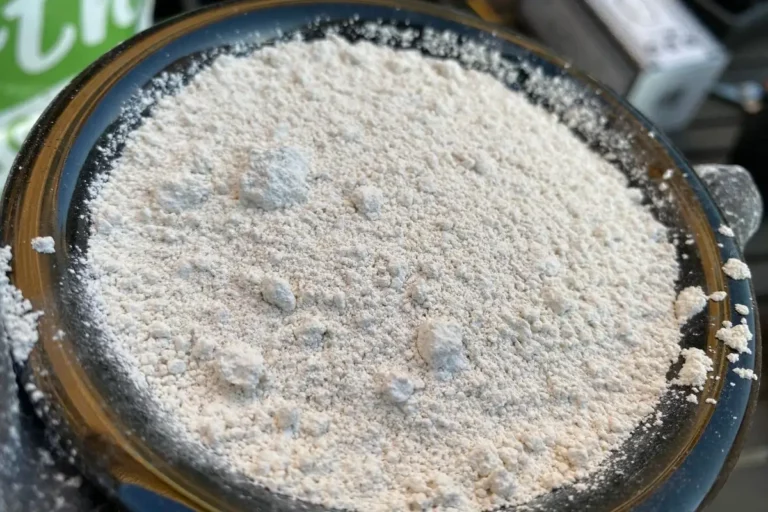
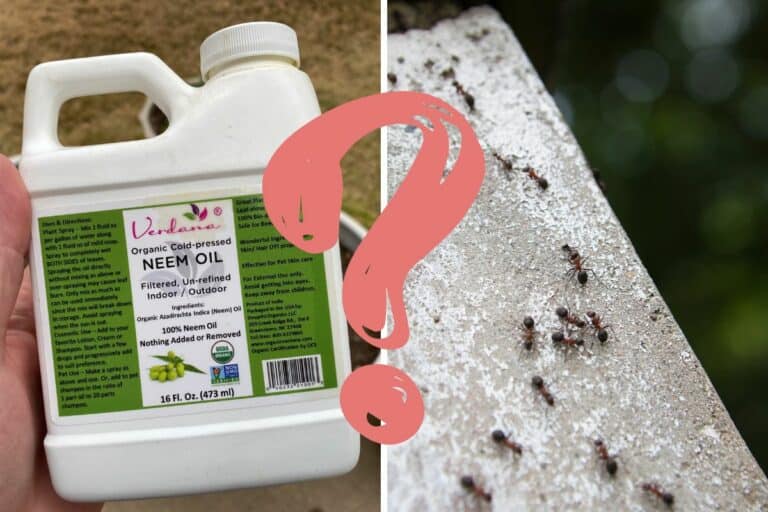
Hello, dear John Thomas.
I am a neem researcher just starting my career. Can you help me and share your experiences with me? If possible, answer the following questions:
1. What is the dosage of neem poison by spraying aerial parts and mixing with soil to absorb from the roots?
2. Are there any fertilizers that are optimized with neem oil, such as liquid fertilizers?
Hi Somayeh, I’ve never mixed neem oil with fertilizer (or used any such product) since fertilizers and neem oil are used for very different purposes. If you’d like to learn more about how I handle neem oil in my garden, check out this article: backyardgardengeek.com/what-bugs-does-neem-oil-repel-and-get-rid-of/
Wishing you the best with the start of your career!